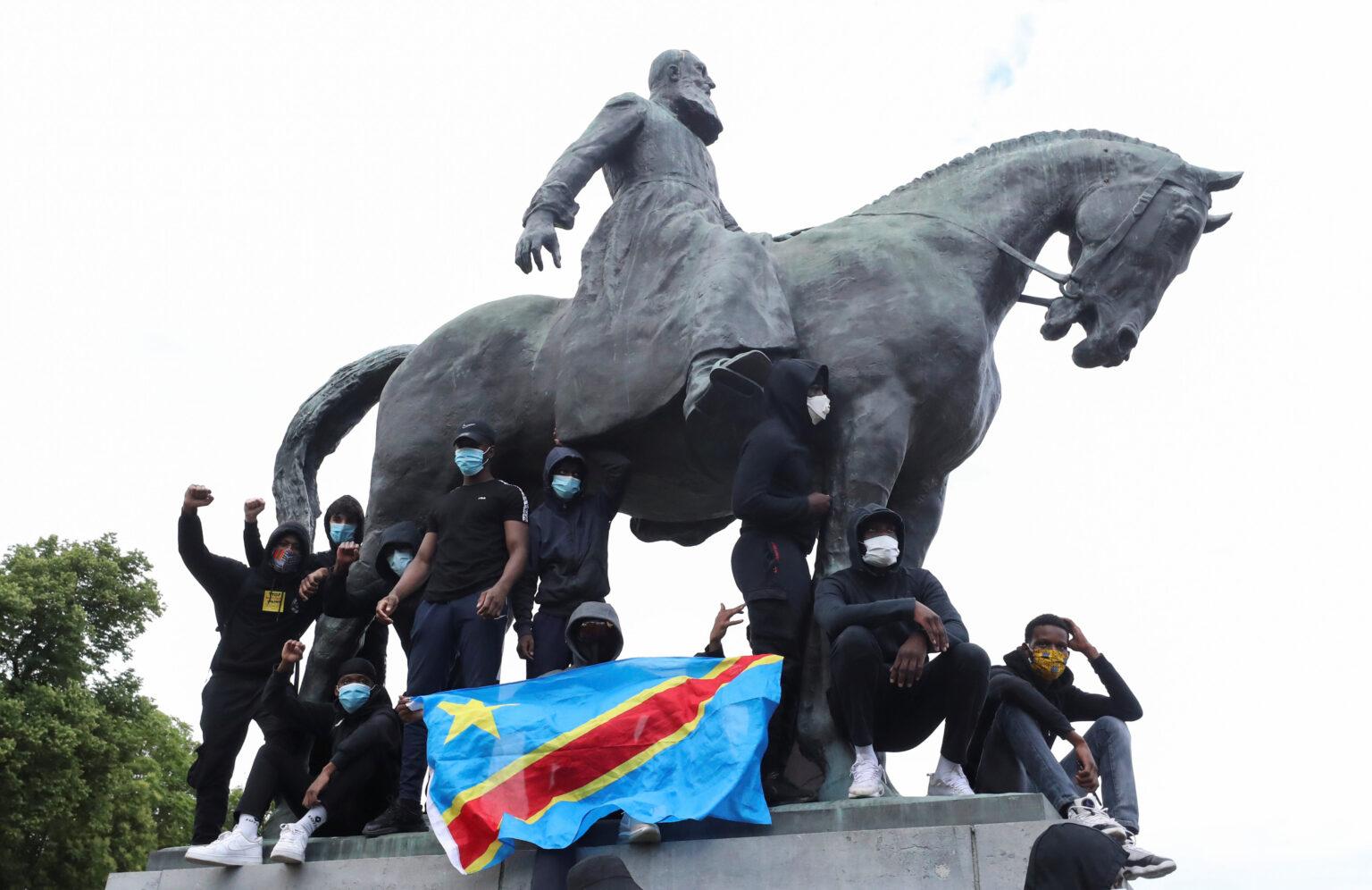Africa-Press – Mauritius. By the time you read this another monument to colonialism should have come crashing down.
There are many candidates dotted across the urban landscapes of Europe. Cecil Rhodes in Oxford. King Leopold II in Brussels, Antwerp and Ghent. Henry Dundas in Edinburgh.
These are more than stone and bronze symbols of a criminal past of plunder and mass murder. Anyone who doubts that should study the downing of the monuments to Benito Mussolini and Francisco Franco, and then to Josef Stalin and Erich Honecker. Already the guardians of Cecil Rhodes have wrapped his statue overlooking the gates of Oriel College in Oxford in protective gauze wire.
A petition launched in Brussels this week calls for the removal of all the statues celebrating Leopold, who presided over the genocide of ten million Congolese and plunder of their country.
Over the weekend the flag of independent Congo was held at the statue of Leopold on horseback. A bust of the dead King in Ghent was painted red and adorned with a face mask with the legend: “I can’t breathe.
” A final unhorsing of Leopold looks imminent.
Demonstrators stand on the statue of Leopold II as one of them holds a national flag of the Democratic Republic of Congo during a protest, organised by Black Lives Matter Belgium, against racial inequality in the aftermath of the death in Minneapolis police custody of George Floyd, in central Brussels, Belgium June 7, 2020.
REUTERS/Yves Herman Europe’s bloody history in Africa, stretching back five centuries, is again political centre-stage. Public arguments about history will help shape the next century.
They are part of what has driven hundreds of thousands of people onto the streets to demand radical change. Those who cannot remember the past are condemned to repeat it. The geographical extension of that history has riven politics in North America.
Ralph Northam, the governor of Virginia State, has ordered the removal of the statue of Robert E Lee, a Confederate general who fought to defend slaveowners in the Civil War.
Avenue Monday June. 8, 2020, in Richmond, Va. Virginia Gov. Ralph Northam has ordered the removal of the statue. (AP Photo/Steve Helber) In step with the rise of the populist right, Confederate flags are flying again on the streets of conservative locales in the United States.
A century and a half after the end of the Civil War, the fault lines persist. Two weeks after the police murder of George Floyd in Minneapolis, the global protests against racism are bolstering demands for reparations, moral and material.
The felling of the statue of slave trader Edward Colston on Sunday from its plinth in the centre of the English port city of Bristol, and its dumping in the docks from which the slave ships sailed, followed decades of campaigning for its removal.
The delighted crowd – a snapshot of modern multi-cultural Bristol – that greeted Colston’s final despatch have won an important victory over the loyal retainers of Britain’s colonial mythology.
Global ululation at the toppling of Colston reverberated across social media left Britain’s conservative politicians harrumphing about vandalism and ‘criminal damage’, ignoring moral issues raised by such monuments.
As historian David Olusoga points out, people in Bristol were angered not just by the valorisation of Colston but by the refusal of his cheerleaders such as the Society of Merchant Venturers to acknowledge the brutalised people that generated the wealth of the Royal Africa Company of which he was deputy governor.
Protesters against systemic racism in the UK tore down a bronze statue depicting slave trader Edward Colston, rolling it through the streets before tossing it into the river.
The resonance of history won’t end with this or the next ten monuments to fall. Instead, fuelled by the intensity of our times, it will reopen arguments over reparations for historic crimes.
As advocated by pan-Africanist activists, politicians such as the late Joseph Henry Mensah and Moshood Abiola, and Indian intellectuals such as Shashi Tharoor, reparations are as much about a moral reordering as a balance sheet calculation of debts, written in blood across Africa and Asia.
They are also give a chance for creative thinking as countries navigate through the economic and social consequences of the pandemic. For those who want a more equitable and practical internationalism to come out of the emerging geo-political shifts, some of the work has already been done.
In successive UN conferences, activists and technicians have drawn up development goals – universal free education and healthcare and ending the despoliation our natural environment – which earnest diplomats endorsed in signed statements.
Complete the form for your free download of The Africa Report’s special feature “The top 50 Disruptors”. Get your free PDF by completing the following form. Email Address * Practical actions have not matched stated intentions. Another UN grand projet is withering on the vine.
With the public health consequences of deepening inequalities so evident today, even harder hearts in the West should see self-interest in international action. In case they miss the point, this age of protest drawing on historical wrongs is not going away.
A century ago amid a global pandemic, a conference of imperial overlords, leavened by the occasional freedom fighter, met in Paris to try to reconstruct the world order after a continental war had consumed millions of lives.
This time with a clearer sense of history, more freedom fighters and no overlords, we could do much better. George Santayana’s aphorism is more apposite than ever: “Those who cannot remember the past are condemned to repeat it.”
For More News And Analysis About Mauritius Follow Africa-Press







